This is the overall review of my 21-day fasting experiment in Feb 2011 and probably the most in-depth fasting series you will ever find online. If you’re new to fasting, get the full background here: Fasting Experiment. Access all my articles on fasting: The Fasting Series.
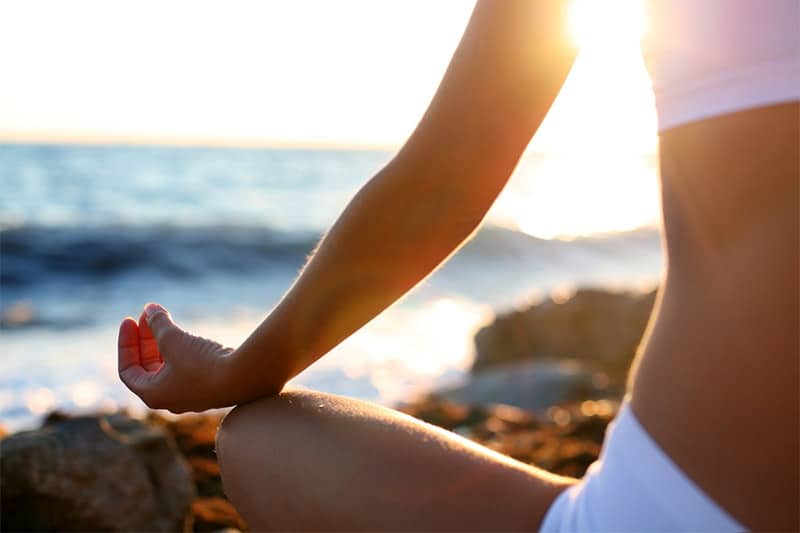
In this 6,000+ word in-depth review, I share my overall experience of my 21-day fast (Feb 4-24, 2011) as well as one week post-fast (Feb 25 – Mar 3). I have included the positive benefits that I’ve gained and the detox I went through in the process. This is a holistic review and not a mere rehash of what I’ve written in my fasting logs, and I hope those of you who are interested in fasting will find it helpful.
If you’ve not read my original fasting article, you should do so first as it provides the background of my fasting experiment and why I embarked on it.
All Fasting Articles + Logs
As the fasting series has expanded into a huge colossal of articles, I’ve created a content page to line up my fasting articles. Access all the articles I’ve written on fasting, including logs of my 21-day fast and my post-fast logs here: The Fasting Series
Overall Assessment
Overall, I declare the fast a great success. I’ve achieved all the key objectives I set out at the beginning of the fast, which were (a) physical detox, (b) establishing a new relationship with food, (c) providing an open platform for Personal Excellence readers to learn about fasting together without judgment or prejudice, (d) emotional detox, and last but not least, (e) weight loss. There are also many other benefits that I received which I did not anticipate, such as improved complexion, cleansed stomach/system, and finally reaching my ideal weight of 120+lbs (I expected to lose weight, but I wasn’t sure if I would reach 120+lbs with the fast).
For sure, I’ve emerged a different person than before — not just physically, but emotionally too. I feel very renewed and all ready to start my next phase of life.
While there was no special reason why I set a fasting duration of 21 days, in retrospect it was just right for my first fast. Any longer and it would have been too long (I was cycling through similar revelations towards the end). Any shorter and I wouldn’t have experienced the deeper benefits of my fast. A lot of heavy physical and emotional detox happened in Weeks 2 and 3 of the fast.
I’ll now share my fasting takeaways, starting with the physical aspect.
Complexion
My physical complexion has really improved with the fast. While my skin used to be oily (to very oily if I ate fried food), it’s now normal to slightly oily. The zits I used to have on my forehead (I think due to my bangs) have fully cleared up. My pores have reduced a fair bit, to the point that makeup glides on smoothly. My skin is a lot more radiant and brighter. Texture-wise, it’s definitely a lot smoother. I don’t recall the last time my skin looked this good. One of my coaching clients was amazed when she saw me after the fast — she remarked that my skin looked really bright and radiant (and I didn’t put any makeup on when I met her for our session).
For the record, my skin has never been disastrous; in fact, people have complimented me before for having good skin. The difference here is that my skin changed from okay/good to amazing with the fast. My skin almost has an airbrushed effect when I put on foundation and it feels just like baby’s skin, believe it or not.)
Pre-fast, I’d get about 3-5 pimples every 1-2 weeks on average, which is a norm for Asians living in a tropical climate like in Singapore as it’s very hot and humid. Well, this didn’t happen during the fast. I didn’t have any outbreaks during my period in Week 1 when I’d usually have an outbreak before my period starts. While I had a few zits during the first half of the fast, I suspect this was due to my foundation/makeup because I didn’t get any new pimples after I stopped putting makeup.
For the record, I’ve not changed my skincare routine. I generally don’t use a lot of skincare products, just basic cleansing and moisturizing.
The skin improvement is a much-welcomed change as it’s quite annoying to get pimples. Those of you who get pimples regularly would know. First off it’s unsightly (it’s somewhat visible even when you try to conceal with makeup). Secondly, you’ve to be careful not to damage each pimple lest it leaves a mark later on. Thirdly, it can bring down your self-confidence especially when you have a bad outbreak.
Seeing how my skin has improved and switched from oily to normal/slightly oily made me question how much one’s skin condition is due to genetics and how much is due to diet. I always thought my skin was inherently oily and I had to live with pimples for the rest of my life. Since the age of 16, I started having pimples. I don’t get acne (like clusters of pimples that cover the face), but I do get zits and occasional outbreaks (the large pimples with pus in them). I thought the outbreaks would stop when I entered university, but I was wrong. There was a point in university when I would get outbreaks every few days, and it was very depressing. The outbreaks stopped (somewhat) when I grew older, but I continued to get zits and small pimples. I had pretty much resigned to deal with them for the rest of my life.
But this fast has shown me that it’s not true. While it’s true that oily skin leads to zits and pimples, and your skin type is probably hereditary to some degree, it seems that your skin type can be dramatically improved through your diet. By drinking only clear water in the 21-day fast, my skin has completely cleared up. Now as I start on a clean diet of fresh fruits and vegetables one week post-fast, my skin maintains the same condition as during the fast. Thinking back, I remember experiencing better skin after my 21-day raw food trials in the past (I’ve been on 3 raw food trials in the past two years).
Weight Loss
On the whole, I’ve lost a total of 10.1kg/22.3lbs during the 21-day fast and 6 days after the fast. Below is a graph of my weight change throughout the 27 days:
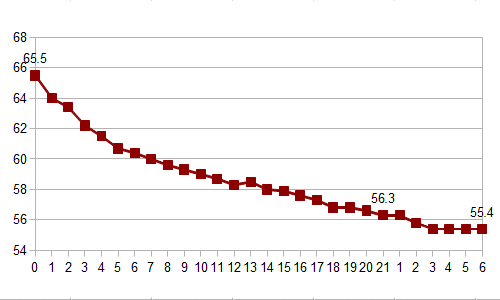
- Weight on Day 0: 65.5kg / 144.4lb
- Weight on Day 21 (end of fast): 56.3kg / 124.1lb
- Total weight loss during the fast: -9.2kg / -20.3lb
- Average loss of -0.4kg / -1.0lb per day
- Full fat loss occurred from Day 4 onwards when my body entered ketosis
- Weight on Day 6 post-fast: 55.4kg / 122.2lb
- Additional loss of -0.9kg / -2.0lb
This is the lowest weight I’ve ever been in my entire life. The last time I was at this weight was when I was 16-17 (and 2-3 cm shorter than my current height of 1.7m too)! Granted, some of the loss is due to not having food and sodium in my system (sodium causes water retention), so I can imagine the weight going up slightly after resuming regular meals.
To be honest, I never thought I would be able to lose the excess weight so quickly. Weight loss has been something that I battled with for a big part of my life, with me constantly bouncing back-and-forth between exercising, wanting to eat healthily, and emotional eating. Because of that, my weight loss attempts would always be jeopardized by binges. Over the past 8 years or so, my weight has slowly crept up by about a kg or so every year, despite efforts to lose weight.
Hence, it feels absolutely surreal to lose the weight so quickly through the fast. All the smaller clothes I bought in the past all fit great now, and it feels great to be able to wear them. :D Overall, I’ve lost weight from all parts of my body, including my waist, hips, thighs, shoulders, and face. I’ve got quite a few people commenting on how sharp my jawline looks now compared to the past. Clothes-wise, I used to wear size 12 (US) shorts, and I’m now able to fit into a size 8 (US) shorts somewhat loosely. It’s also a lot more comfortable to walk in high heels because I’m not carrying around excess body weight. My walking posture has improved as well (if you notice, heavier people tend to slouch because of the excess weight they are carrying around).
In transiting to my new look/weight, I’ve thrown out all my bigger-sized clothes and plan to buy some new clothes in the next few months. At this point I’m not sure where my body weight will end up at after I resume normal meals. I’m also not sure the final weight I want to maintain — whether it’s 55kg, lesser, or more. I figure I’ll need a few weeks to play around and figure this out. I definitely plan to get back to exercise to tone up my body (after I regulate my diet), so the increased muscle mass will definitely lead to a few additional kgs. As you can see, I’m more focused on the overall look of my body vs. just the number on the scale.
You might have heard the saying before “losing weight is 80% what you eat and 20% exercise.” It’s definitely true. It’s a lot tougher to lose 500 calories from exercising (which takes running 13km / 8.0 miles), compared to cutting down your food intake (two normal donuts or one Starbucks chocolate drink). My best recommendation is to lose weight via limiting food intake (be it juice fast, water fast, or healthy eating), and then building tone through exercise. If you want to lose weight but you emotional eat, start by addressing that first, because chances are that’s what’s keeping you from losing weight. As long as you use food to feed your emotions, you’ll continue to jeopardize yourself in your quest to lose weight / eat healthily. Slowly does it — there’s no need to rush through the healing process.
(Update: Read my in-depth emotional eating series on how to break through emotional eating.)
Physical Detox
The physical detox wasn’t easy at all. I’d divide it into 3 phases – Week 1, Week 2, and Week 3.
Week 1 was very easy. Pre-ketosis, which spanned Days 1-3, was a breeze. Since I had read up on water fasting on Days 0-1, I was mentally prepared to go into the fast in full force. I was also able to go about my daily routine as per normal.
Ketosis kicked in on Day 4. This was when my physical energy began to decreased as my body channeled the energy inward for healing. Slight nausea kicked in, along with lightheadedness. My tongue started to be covered in white and my mouth tasted bitter. Physical mobility slowed down. My heartbeat was slightly faster and stronger than usual, but still well within the 60-80 beats per minute average. These symptoms built up with each day into the fast.
By the end of Week 2, I was in heavy detox mode. I was experiencing constant strong nausea, headaches, very bad lightheadedness, and stomach aches. I felt a lot of the detox was from the processed and junk food that I ate in the past, because a lot of such past memories kept flooding over me. When I wasn’t out coaching, I would spend a big chunk of time sleeping each day, to the extent that I was very sick of lying down. I believe part of the physical detox spilled over emotionally, and facing both physical and emotional detox was very overwhelming. Out of the 21 days of fasting, Days 14, 16 and 17 were probably the toughest.
In the middle of Week 3, the heavy detox signs cleared up. By then, I began detoxing on common ailments, such as sore throats, flu, and fever. Many of these symptoms would show up suddenly during the day, then disappear after a few hours. These were very manageable and was nothing compared to the heavy detox. By Day 21, all of them had cleared up except for a little phlegm. It was almost as if my body knew that I was going for a 21-day fast and it was wrapping things up. :D
Bowel Movement
Some forum members were curious to know if I had any bowel movements during the fast. I didn’t, actually! I also didn’t do any enemas or colon cleanses. I figure if there’s anything that needs to be cleared out of the digestive tracks, it would clear by itself either during or after the fast.
I did have a bowel movement after I began eating normal meals, and the stool was very hard and difficult to pass, with some bright red blood due to difficult defecation. It was a long, hard, and somewhat thin stool. I believe the stool (from my food intake pre-fast) had severely hardened in my body during the fasting process and was only triggered into leaving my digestive track after I resumed eating post-fast. The bowel movements after that became normalized and there was no more blood.
Cleansed Stomach
My stomach has been cleansed during the 21 days. As I wrote in my Day 4 post-fast update:
[…] My stomach post-fast is now very different from pre-fast. For one, it’s very cleansed, in a very good way. The sight of oily food / unhealthy food honestly repulses me now. I absolutely can’t stand the thought of filling it with anything that’s fried/deep-fried/oily. The thought of doing so is like contaminating my body with junk. In retrospect, I can’t imagine how I even allowed myself to eat all those unhealthy, highly-processed, and junk food in the past.
I intend to keep things that way too. Read more about my post-fast diet plan further on in this article.
Heavy Emotional Detox
Like my physical detox, my emotional detox during the fast can be broken down into 3 phases as well. Week 1 was largely the clearing of general attachments with food. Week 2 was deeper, where many underpinnings of those attachments unveiled themselves. Issues that I used to cover up with food surfaced and hit me, one after another. Here’s an excerpt from my Day 14 update:
[…] Mentally I felt so compressed that I don’t think my headache was an actual physical detox but a result of all my issues weighing down on my mind. I tried verbal brain dumping which helped somewhat, but there was too much coming in too fast, so in the end I just sat in a detached manner and soaked in all the emotions whirling around me. Meditation didn’t really help either — it’s more useful when you’re dealing with a light wave of emotions than when you’re hit with a huge tornado of negative emotions every second.
My key insights in Weeks 1-2 are food/eating-related. I’ve covered them under “Re-establishing a New Relationship with Food” section below, so I’m not going to repeat them here.
During Week 3, the detox went even deeper, and a lot darker. I felt like I was soaking in a pool of emptiness, and underneath that was a huge, overwhelming feeling of self-contempt which felt very foreign and didn’t register even with my earliest memories. I could only guess that it pre-dated even my childhood years. I tried to work through them, but didn’t make major headway. However, the awareness in itself is a big step forward IMO, since it has helped me become privy to the next wave in my journey of growth. I have kept it aside for future processing.
Frankly speaking, I knew it is a matter of time before I would get back to the fundamental topic of personal growth – self-image and self-love, so in a way I’m really excited about it. I look forward to exploring that in the near future as I continue my growth.
(Update: I have since heavily explored and addressed my deeper issues with self-image, which I share in my series on femininity, body image, and beauty.)
Re-establishing a New Relationship with Food
One of my biggest gains from the fast is a new perspective surrounding food. I’ve always known for a while that I have many deep subconscious linkages with food that need serious exploration, so I was glad that the fast gave me the emotional and physical space to do so.
A lot of these issues seem intuitive, but they’ve been so subconsciously embedded and are so closely interlocked that I was unable to shine a light on them for a long time. By having a 21-day break from food, it really gave me time to take a step back from eating and gain a proper perspective on food, its role in my life, and what exactly I want it to be. I’m finally able to see and recognize food for what it is — a fuel to sustain life — nothing more, nothing less. To be honest, I’m glad that I’m finally able to gain closure on many of these long outstanding problems after all these years.
The fast has helped me clear a lot of my outstanding issues with food, but at the same time, I recognize there are still more subconscious issues to be addressed. This I’ll continue to do in the future, as I embark on my journey towards healthy living. Bear in mind that fasting is not and will not be a holy grail which will resolve all your problems, including weight and food issues, as I mentioned in 12 Tips To Achieve Fasting Success. It’s about making the commitment and conscious decision towards healthy living, through proper diet and exercise.
Below, I share four of my biggest insights I gained regarding food from/during the fast.
1. Food as Love
The first thing I realized is how much food was synonymous with love in my world. To eat was to be kind and to take care of myself. Food was a form of reward. This was how my parents expressed their love for me when I was young. Since young, my parents, especially my mom, would buy all sorts of food and snacks home as a display of their affection. I remember they would buy an item from each food stall every Sat, just so my brother and I could have our pick of what we wanted.
Even today, they continue to express their love primarily through food. The first question my dad asks me every day when he returns home is “Have you eaten?” or “Do you want me to buy any food for you?” My mom, on the other hand, busies herself with grocery shopping and cooking (on top of running her fruit stall) as part of ensuring the family is well-fed.
Because of that, food was an emotional energy source for me growing up. If I ever felt stressed, bogged down, or needed to do some brain work, I would automatically reach out for food to get relief. This was actually the source of a lot of my emotional eating. As bizarre as it may seem, food had become my companion, my friend over the years. For a long time, the dominant conversation running through my mind was, “I need to eat; eating gives me energy to do what I have to do.” Of course, this isn’t true. Our bodies have all the reserves they need to survive for weeks without food. I don’t need any additional food at all. This belief is just a fallacy.
2. Eating to Express Love; Feeling Obligated to Eat
Beyond eating to emotionally fuel myself, I would also eat to express gratitude and love to my parents. If my parents ever cooked or bought something, I would feel obligated to eat the food, otherwise the food would go to waste. This led me to eat a lot of junk food, fried food, unhealthy food, etc., which I normally wouldn’t want to eat, but did so any way because they were there.
During the fast, it occurred to me that it was okay not to eat them at all. I saw my parents buying/cooking new food every day for the family (that I ideally don’t want to eat but would have eaten normally), after which the leftovers would get thrown away the next day. And guess what? The world didn’t end and life continued as normal, much to my surprise. They continued to buy/cook new food the next day, after which leftovers would again get thrown away. This continued every day for the 21 days.
It was then that I realized I have the right to say no if something is not the way I want. It’s perfectly okay not to eat something if I don’t want to and to choose the foods that I do want to eat. This was a small but very powerful realization that I now exercise every day in my meals. Of course the way they would throw away the uneaten food each day is very wasteful, but this is something my parents need to learn — to stop buying/cooking more food when I say no, and to plan properly rather than constantly insisting to buy/cook more food for the sake of it.
As for showing love and appreciation to my parents, I’ve learned to stop using food as a proxy of expression and instead communicate more openly with them. I’m now talking more often with them and I also make it a point every evening to join my dad in watching TV (his favorite evening pastime). For sure, such methods of conveying love are more direct and non-convoluted than eating food that they cook/buy (which I don’t want to eat).
3. Eating to Recapture Past Emotions
The third thing was how I would eat as a way to recapture past positive memories. As I mentioned on Day 6:
For example, a part of me thought about eating a veggie pizza complete with cheese and all. However, I know eating it doesn’t truly make me feel happy. I’ve done it lots of times in the past and the result was always the same. Looking at the picture makes me tempted, I get excited about eating it, I feel happy when eating, but after eating I would never feel happy. The same thing applies for other food items — be it waffles, ice cream, my mom/dad’s cooking, fries, sushi, chocolate shakes, wafers, cookies, pastries, or pretty much any food item.
The thing is, I was never after the food. What I was after was the emotion I would get while eating. It could be positive memories in the past when I ate it with friends or family or memories from a particular stage of my life. It could be the supposed joy that eating the food brings, as depicted in commercials, food posters, and TV shows. When I objectively explored each feeling of nostalgia, this same answer would emerge. Even as I explore the deepest side of me, I could feel a speck of nostalgia towards certain food items — not because I want to eat them, but because of past positive memories I had while eating them.
This was why I would eat so incessantly because food was never the answer. Food was merely a proxy to reconnect with the emotion I was craving for. And because food isn’t the true source of the emotion, it led me to eat more just to hunt down the emotion. And afterward, because I feel bad for eating something I didn’t even want to in the first place, I would eat more as self-punishment. And more, and more. It was an endless spiral. Food wasn’t a relief; it had become a prison. I feel that if I continue down that line, at some point I’d probably eat myself to death.
Being conscious of this is helping me untangle from the messy web I’ve gotten trapped in. Rather than chase after food to reconnect with an emotion (and not getting anywhere), I should connect with the emotions directly at the source. If it’s a feeling of connection I’m looking for with my parents, then connect with them. Doing so helps tackle the issue at the root, and take food, an unrelated item in this web of feelings, out of the equation.
4. Finally Understanding True Hunger
Surviving perfectly fine without food for 21 days was incredibly eye-opening. It suddenly made me realize that majority of the population actually knows very little about the human body, and a lot of what they say about eating, diet, and the body’s limitations and capabilities are not true at all. It was an extremely powerful realization, and there are actually two points I want to make about this.
Firstly, you definitely do not die from not eating for 21 days (in fact the average, acceptable-weight person has reserves that can last 40 days, with a longer duration for heavier people). By that standard, it’s actually really hard for anyone to truly die of hunger in the modern society. Drama serials depicting people on the brink of death from not eating for a few days might want to get some reality check there. I also had quite an interesting time observing reactions of people who knew that I didn’t eat for 21 days and freaking out about that, because it reflects how deeply embedded such conditioning and beliefs are, despite them being untrue.
Secondly, all the different signs and sensations people refer to as a cue on when to eat/not eat are totally irrelevant to hunger. During the 21 days, I experienced all these supposed “hunger” sensations. From the growling of stomach to the introduction of digestive juices to the emptiness/fullness of stomach (very common indicator but definitely untrue) to mental cravings to emotional cravings. Each time, each sensation would rise and fade away, and I continued to function fine. I didn’t die. I also certainly didn’t convulse in terror and pain from not eating.
The fact is, none of that is true hunger. Even at the end of the 21 days, I never experienced true hunger — an intense physical craving for food that comes not from the stomach, the mind or the heart, but the throat. Short of not eating anything for 40 days, I don’t think anyone has ever experienced true hunger in his/her life.
The funny thing is that I’ve lived a large part of my life freaking out and living in fear that I might die from not eating enough. In primary school, my teacher always warned us never to go without food for more than 4 hours because she suffered from irreversible damage to her stomach walls from irregular eating hours. (I later found out during the fast that gastric pain is due to present issues with the person’s stomach, and not caused by not eating.) My parents, particularly my dad, would always tell me to eat more and that I was not eating enough — even when I may well be eating enough. My mom — even today — would obsess over ensuring everyone is well-fed and repeatedly buys/cooks excessive amounts of food even when people in the family insist that they have eaten. I had a classmate in primary school who barely ate and was extremely thin and sick looking; she was etched in my mind as an image of someone would become if he/she didn’t eat enough.
Because of the above, I would always overeat than under-eat. If I ever felt that I wasn’t eating enough, I would freak out. If it’s been a few hours since I last ate, I would worry that I wasn’t taking proper care of myself (see #1 Food as Love). Looking back, a lot of my past eating behaviors were driven by emotions, thoughts, and even physical sensations, all of which have nothing to do with real hunger at all. They were absolutely ridiculous. Not eating for 21 days straight during the fast and surviving perfectly well has made me realize how far I’m away from ever “dying of hunger.” All my worries in the past were unfounded and merely figments of imagination and false conditioning.
Mental Clarity and Creativity
While some fasters reported having increased mental clarity and creativity during their fasts, I didn’t experience any of that. My take is that every fast is different, and everyone experiences detox on areas that he/she is most blocked on. For me my biggest gains during the fast were physical detox, weight loss, a re-established relationship with food, and emotional detox. Mental clarity and creativity-wise, not so much. To begin with, I’ve never experienced any issues with mental clarity before my fast. Creativity has never been an issue either — doing what I love every day is a never-ending fuel for new ideas and inspiration.
I read in a fasting literature that fasts have to be longer than 21 days to “awaken the higher mind functions” — i.e. an awakening of intuitive senses, creativity, and deeper spiritual connection. Since my fast was 21 days, that may be another reason why I didn’t experience that.
Initial Difficulty in Breaking the Fast
After 21 days of not eating, my stomach had entered slumber mode. I experienced difficulty breaking the fast during the first two days, where the watermelon and apple pieces I ate were untouched by my stomach. I also felt nauseous after eating, and at some points my body tried to vomit the fruits out. That actually got me panicking for a while because I felt like I was stuck in fasting limbo — wanting to eat but not able to process the food! It was only on Day 3 that I finally succeeded in breaking the fast (as mentioned in Day 4’s post-fast update).
Today is Day 6 post-fast and I’m pretty much back on normal meals. This morning, I had a delicious Veggie Delite wrap from Subway, with tomato sauce. I think I went up to heaven right at the instant (if you recall, I was obsessing with vegetable wraps after seeing someone have one on Day 16 of my fast). The fresh vegetables were so incredibly tasty and energizing! In the evening, I had brown rice, vegetables, potato, and mock curry chicken. No problems eating and digesting. :D
My Plans Post Fast
The fast has been a mind-opening experience. While many may be attracted to water fasting for obvious weight-loss benefits, it’s so much more than that. While I have lost a fair bit of weight thanks to the fast and I’m happy for that, it is the revelations and physical detox that I’m most grateful for, followed by the weight loss.
For sure, like any change agent, water fasting is just a platform to jump-start the process. The most important thing is what one does after the fast to maintain the positive benefits, from improved complexion, weight loss, physical detox, etc. Without a proper follow-up plan and commitment to change, everything will simply revert to the way they were in the past. Some people use fasting as a quick fix for their problems, and end up looping through the same issues after their fasts are over. These people would no sooner become fasting junkies, and this isn’t what we want.
Having addressed numerous subconscious blockages with food during the fast, I’ve committed to making two key changes post-fast, both of which are diet-related:
The first thing is a commitment to a healthy diet. Having experienced first hand the debilitating effects of toxic food during the fast, I no longer want to feed my body with unhealthy food and toxins where possible. There may be times when I’m not able to adhere to the guideline because unhealthy food is so prevalent in our modern world, but this is the ideal I want to work toward.
This means, where possible,
- No oily/fried/deep-fried food. So food cooked using healthier cooking methods, like baking, boiling, steaming, and to a lesser event grilling.
- No processed food where possible. Things that come in packets, boxes, and along the inner aisles of supermarkets are generally processed.
- More organic food where possible.
- More whole foods in their original form and source. For example, chicken parts rather than sausage or luncheon meat, which are heavily processed meat.
- Variety of whole foods such as fruits and vegetables as part of diversifying my gut flora.
I’m also cutting out instant noodles (one of my staple foods in the past), a very popular Asian food which is essentially just dried, fried flour with no nutrition at all.
The second thing is to eat based on my daily caloric and nutritional needs, and nothing else. This also includes eating a diet that’s high in vitamins and minerals.
In the past, I ate based on many different sensations and emotions which I thought was hunger. These included the growling of the stomach, how empty/full my stomach feels, the time of the day (i.e. for breakfast/lunch/dinner), the time I last ate, mental craving, the emotional desire for food, and so on. The truth is, all of them were irrelevant to true hunger, which is physical craving for food from the throat. Anything else is merely an illusion of hunger.
Now that hunger has a new-found meaning in my book, the question goes back to — Why do we, as humans, even need to consume food to live in the first place? Certainly not for pleasure, acceptance, nor comfort. The primary reason we eat is that food is a fuel for us to live longer and have a richer experience of life.
Given that, the guiding factor as to how much and what we should eat a day should then be based precisely on that – what’s required to fully meet our daily energy and nutritional needs, so we can live our life to the fullest.
Sure, we can and should still enjoy food as we eat them, but we should never lose sight of this primary role of food in our lives or it’ll no sooner lead to a relationship that spirals out of control — where one overeats, obsesses about eating/not eating something, switches regularly between “craving,” “indulging,” “resisting,” and “controlling” his/her appetite when around food, gains weight despite intentions not to, etc. All these are tell-tale signs when one has a non-ideal relationship with food, because he/she has made food take on the role of something else in his/her life, a role which it will never be able to fill as a proxy. I went through this for many years, and it was a painful struggle in the later few years. I hope that by sharing what I went through above, you’ll be able to get insights into your situation too if it applies.
I estimate my daily energy expenditure is about 1,600 calories, so I need the same amount to maintain my weight. Since I’ll be sticking to a clean diet that’s high in whole foods, that will help ensure a diet rich in vitamins and minerals. I won’t be counting calories because it’s laborious, though I’ll weigh in weekly to ensure my weight stays consistent on the whole (though I’m planning to get back into exercising in a couple of weeks, so there might be some gains due to increase in muscle mass).
Final Words
That’s about it with the fasting review and I hope you found it helpful in some way. :D I’d like to thank all of you for following my progress through my fast, as well as your continuous support in the forums. A large part of what gives me joy in life is the ability to pursue my growth and actively share my endeavors and experiments with all of you, so all of you can take the best lessons for yourself. It was definitely a very enjoyable experience doing this experiment and sharing with all of you. If I was not running PE, I doubt I would have as much incentive to take on a 21-day fast and document it to this extent, so thank you for being a part of this journey with me.
I feel that the fasting experiment has definitely been a big step in bringing Personal Excellence’s content to a whole different level. Beyond just a good breadth of topics, I also wish for Personal Excellence to have a strong depth of coverage in life’s different topics. My plan this year is to further expand the boundaries of growth and produce more powerful content that makes a real difference in people’s lives. I’m excited about what’s next, and I’m excited to have all of you here with me. *hug*
If you have not already subscribed to my newsletter, be sure to join my free newsletter here for free tips on personal growth. Nothing spammy, nothing scammy, just great awesome content like what you have read from the fasting experiment.
I’ll likely post another post-fast update at the one-month post-fast mark, just to let all of you know where I’m at.
Update: My Post Fast: 1 Month Update is up!
This is the overall review of my 21-day fasting experiment in Feb 2011 and probably the most in-depth fasting series you will ever find online. If you’re new to fasting, get the full background here: Fasting Experiment. Access all my articles on fasting: The Fasting Series.

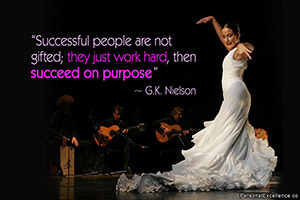
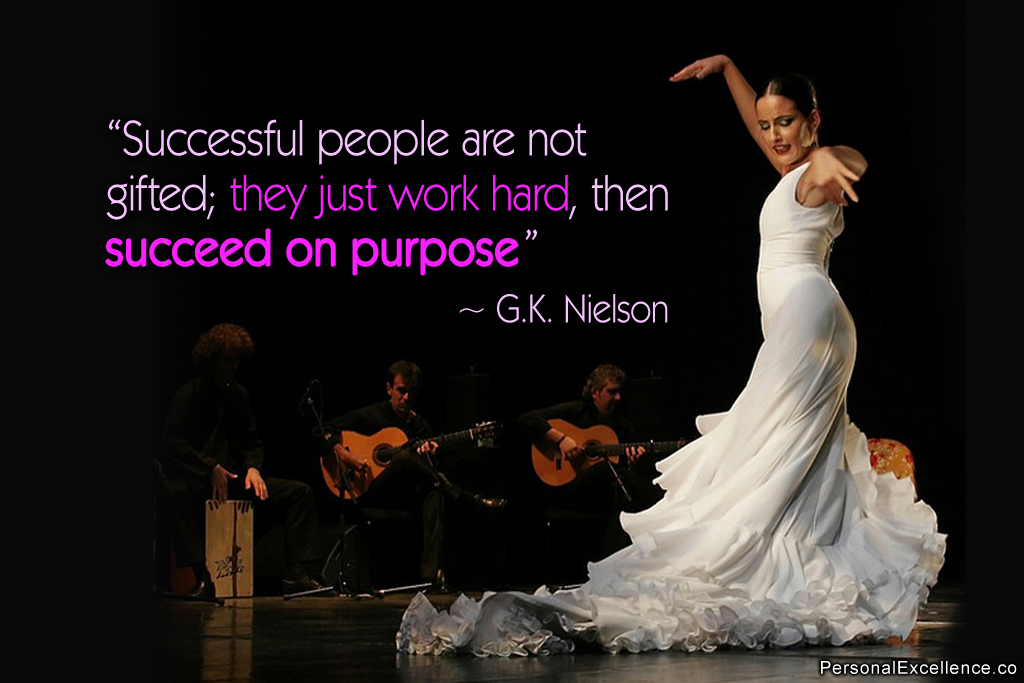


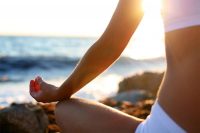
 Thanks for reading. If you like my free articles, join my private email list and get my latest updates and articles sent right to your inbox.
Thanks for reading. If you like my free articles, join my private email list and get my latest updates and articles sent right to your inbox.